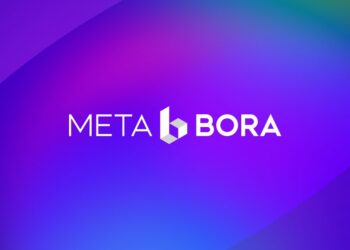Cryptocurrency popularity has risen over time, particularly in underdeveloped countries. Nigerians are realizing the need for the widespread adoption of cryptocurrencies due to the benefits they offer. People utilize cryptocurrencies for a variety of purposes, including daily activities, speculation, a source of income, and investment.
This article will examine the popularity of cryptocurrencies in Nigeria, the fintech and blockchain firms that provide these services to Nigerians, and the government’s stance on the use of cryptocurrencies within the country’s borders.
Crypto popularity in Nigeria
Nigerians, particularly young people, have embraced cryptocurrencies and the benefits they offer. Many people adopted digital currencies due to the potential stability they offer, particularly stablecoins. The Nigerian economy has been deteriorating, with the value of the currency plummeting drastically.
The following are some of the reasons why cryptocurrencies are becoming increasingly popular among Nigerians, particularly among young people.
• Unemployment
Based on a March 2021 Bloomberg report, the unemployment rate of residents living in Nigeria was 33.3% by the end of 2020. The report went on to state, “A third of the 69.7 million-strong labour force in Africa’s most-populous nation either did nothing or worked for less than 20 hours a week, making them unemployed, according to the Nigerian definition. Another 15.9 million worked less than 40 hours a week, making them underemployed.”
Because of the high rate of unemployment in Nigeria, many young people have turned to cryptocurrency as a source of income. It is common to see young and computer-literate Nigerians become crypto traders, smart contract developers, community managers, crypto content writers, moderators, and other professionals in the crypto field.
• Instability of the fiat currency
Another factor that has contributed to the surge in popularity of cryptocurrencies in Nigeria is the volatility of the Naira, the country’s fiat currency. Crypto-literate Nigerians prefer to store their wealth in dollar-denominated stablecoins due to the Naira’s constant depreciation versus the dollar and the pound sterling.
• Speculative and investment purposes
Many Nigerians involved in the crypto space invest in cryptocurrencies with the goal of capital appreciation.
- Some crypto enthusiasts buy tokens that they believe have high-profit potential, hold them for a period, and sell when they want to.
- Some stake their tokens for returns.
- Some participate in liquidity pools and yield farming, which offers APYs.
- Some participate in ICOs and IDOs to buy tokens at a relatively affordable price and flip them for a profit.
Futures and options trading is a popular method used by several young Nigerians in the crypto space to bump up their investments. Finally, participating in Whitelist events held by NFT projects appears to be a recent trend among crypto-literate Nigerians.
The role of FinTech-Blockchain companies in Nigeria
Nigerians utilize a variety of fintech-blockchain companies for speculation and investment. Two common examples are Patricia and Buycoins.
• Patricia
Patricia is a fintech company founded in 2017 by Hanu Fejiro Agodje. Patricia, a crypto-related finance company, developed a platform that enables users to buy and sell cryptocurrencies.
Initially, the startup conducted crypto transactions via WhatsApp, then upgraded to a responsive website and mobile app.
Patricia had its headquarters in Lagos before relocating to the Republic of Estonia. It has hundreds of thousands of registered users and tens of thousands of daily transactions. The startup has grown beyond simply meeting the crypto needs of Nigerians, to providing solutions for other countries.
Patricia offers a peer-to-peer crypto trading feature, which became imperative after the Central Bank of Nigeria banned cryptocurrency transactions through banking channels. The prohibition barred Nigerians from purchasing cryptocurrencies on crypto platforms using their bank accounts or cards. This prompted the development of a secure peer-to-peer feature that safeguards transaction participants.
In addition to crypto exchange services, the fintech company allows its users to use crypto to pay for regular bills such as TV subscriptions.
• Buycoins
Buycoins is a Lagos-based fintech-blockchain platform founded by Timi Ajiboye in 2017.
Buycoins offers a variety of services that allow users to actively participate in the crypto market. With Buycoins, people can use the peer-to-peer exchange, store their coins in a wallet, earn rewards from a referral system, and lock their coins to earn rewards. It also offers a credit-sell feature that allows users to borrow cryptocurrencies to sell, then repay in Bitcoin within six hours.
Blockchain protocols in Nigeria
Apart from fintech startups that offer fascinating services for crypto enthusiasts, Nigeria is also home to blockchain protocols that offer decentralized finance functionalities, such as Xend Finance.
Xend Finance
Xend Finance is a Nigerian-based decentralized finance protocol that addresses currency devaluation via its interest-earning solutions. It was founded in 2019 by Aronu Ugochukwu and Abafor Chima.
Individuals and businesses from all over the world can use it to earn interest on their cryptocurrency savings.
Xend Finance offers decentralized finance lending features that come with flexible repayment terms. As a comprehensive DeFi ecosystem, crypto enthusiasts can also protect their digital assets via the insurance program on the protocol. Users prefer the savings system on Xend Finance because it allows them to hedge against currency devaluation by saving in stable coins.
Crypto Exchanges in Nigeria
Although the Central Bank of Nigeria has prohibited banks from allowing their customers to use their bank accounts or cards to purchase crypto from crypto exchanges. Users can still buy, sell, and trade cryptocurrencies on popular exchanges using the peer-to-peer feature. The following are some popular cryptocurrency exchanges in Nigeria.
Luno
Luno is a popular crypto exchange used by Nigerians to buy and sell cryptocurrencies instantly. It comes with APIs to allow traders to automatically manage their accounts, access market data, and create positions. Users have a wide array of cryptocurrencies to choose from when trading, and it offers a peer-to-peer feature for Nigerians.
Bundle
Bundle is an easy-to-use crypto exchange that allows users to send and receive crypto or fiat. With the crypto ban by CBN, Bundle removed the card payment option and incorporated the peer-to-peer trading element with an escrow system to ensure secure transactions.
Users can send crypto to a recipient’s phone number. Once the recipient creates an account on Bundle, they gain full access to the cryptocurrency.
Bundle offers a wide array of cryptocurrencies to choose from, including popular stablecoins. The bundle also offers a referral system that rewards users that invite others to use the crypto exchange.
Are Cryptocurrencies Legal in Nigeria?
The Nigerian government has not banned the use of cryptocurrencies in the country. Residents can buy, sell and trade cryptocurrencies as long as they do not use the banking infrastructure.
CBN Ban On Cryptocurrency Transactions In The Nigerian Banking Sector.
The Central Bank of Nigeria, on the 5th of February 2021, published a letter addressed to financial institutions operating in Nigeria, prohibiting them from dealing in cryptocurrencies and allowing their clients to use their infrastructure to do the same.
As part of its directives, The apex bank ordered financial institutions to close the accounts of clients involved in cryptocurrency transactions.
Nigerian banks placed restrictions on the use of their issued cards on cryptocurrency trading platforms. Individuals and businesses were barred from receiving funds directly from cryptocurrency exchanges.
Following the implementation of the ban, crypto exchanges operating in Nigeria developed a peer-to-peer trading feature that allowed individual traders to trade tokens with one another rather than the exchange. This eliminated the need for Nigerians to use bank accounts or cards to purchase cryptocurrencies or receive payments via crypto exchanges.
CBN launches its CBDC (e-naira)
In 2021, the CBN became one of the apex banks to launch its CBDC, called e-Naira. The e-Naira utilizes blockchain technology. But unlike cryptocurrencies, it is controlled by the state.
With the centralized element, the CBN controls the operation of the CBDC, and users have to disclose their identity before they can use it.
Owners of the wallet can store and send the e-Naira to anyone without paying any fees.
The Central Bank of Nigeria created the e-Naira to increase financial inclusion by offering financial services to residents. The e-Naira also enables users to make domestic and cross-border payments with ease.
In Conclusion,
- There is an increase in the number of young Nigerians using cryptocurrencies.
- Cryptocurrencies are used in Nigeria as a source of income, for investment, and for speculative purposes.
- Fintech companies such as Buycoins and Patricia provide crypto services to Nigerians.
- Nigerians are developing blockchain protocols such as Xend Finance to provide Decentralized Finance services.
- Nigerians have access to crypto exchanges such as Luno and Bundle.
- The use of cryptocurrency is not prohibited in Nigeria.
- The CBN has prohibited banks from allowing their customers to buy and trade cryptocurrencies using banking infrastructure.
- The Central Bank of Nigeria (CBN) unveiled its CBDC, the e-Naira, to increase financial inclusion and facilitate seamless transactions.
If you would like to read more articles like this, follow DeFi Planet on Twitter, Facebook and LinkedIn.





















